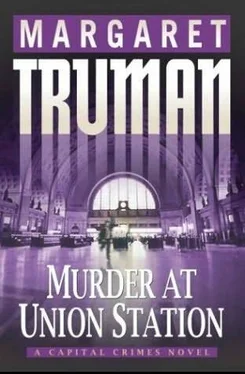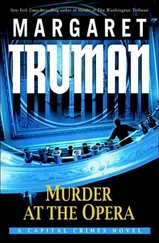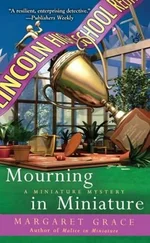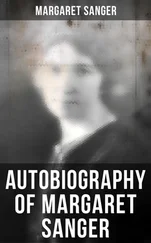“Okay, Rich, let’s approach this in a reasonable, rational manner. There’s an opportunity here to salvage the book and see it achieve the sort of success we all envisioned for it, especially you. I must admit that I don’t understand why you’ve adopted this protective attitude toward the tapes. All they represent is what Russo told you, true or false. Playing them for the public at the hearings is the fair way to go-the American way to go, it seems to me. Let people hear what the man had to say in his own voice, and make up their own minds about his veracity.”
The American way, Rich thought. A nation ruled by the political sound bite.
Senator Widmer would proclaim in stentorian tones that the American way did not include assassinating visiting foreign leaders, and that those responsible were not fit to hold high office.
The White House would disperse its cadre of talking heads to the Sunday morning talk shows to accuse Widmer and his Republican supporters of blatant political motives in an election season, and to brand Russo and Marienthal as kooky pawns of the right wing.
Either way, and no matter how the public reacted, this was not the end result Richard Marienthal intended when he set out to write a best-selling book, his breakthrough, his claim to fame, his credential for a long and lucrative writing career.
“I’ll get back to you no later than tomorrow,” Marienthal said.
“Tomorrow?”
“Yeah, tomorrow.”
He ended the conversation and waited for Kathryn to arrive.

Stripling parked across the street from the building in which Winard Jackson’s apartment was located, and where Rich Marienthal had been holed up. He’d received another call on his cell phone from the Com Center in the Hoover Building, advising him that intercepted messages indicated that the subject had announced his intention to go to New York later that day, and that the subject did in fact have in his possession certain tapes.
He wasn’t sure what his next step should be. He had no way of knowing how many people might be with Marienthal inside the building, and was reluctant to attempt to confront the writer there. Marienthal was going to New York-which meant he’d be coming out, hopefully soon. Better to wait for that to happen, and trust he’d be alone. He pressed his elbow against the Smith & Wesson in its holster beneath his arm, comforted by its presence, although confident he wouldn’t have to use it. Marienthal was a writer, probably effete, lightweight-a lover, not a fighter. The worst that could happen was that he’d have to display the gun to show Marienthal that he meant business. “Don’t be stupid, kid. Just give me the tapes and go write a poem somewhere.”
A taxi arrived. Stripling slid lower in the seat, but not so low that he couldn’t see the attractive young woman in a short skirt and wearing large glasses get out of the cab, pay the fare, and go to the building’s front door.
A second cab came around the corner and pulled up to the curb a half block from the first. A short, stocky young man wearing a suit got out and leaned through the open front passenger window. Stripling couldn’t hear the words, but it was obvious the passenger wasn’t flattering the driver. He shoved his hand in the window and backed away; both cabs drove off.
The woman with glasses read names on the intercom panel, pressed a button, and spoke into the panel. There was the faint sound of a buzzer; she pushed open the door and disappeared inside.
Stripling returned his attention to the short, stocky guy standing on the sidewalk. He’d moved behind a tree, shielding him from view of the door through which the woman had entered.
Who’s he? he wondered. Who’s she? Must be Marienthal’s live-in girlfriend. Nice legs. She could do better than get involved with a writer. With so many more single women than single men in D.C., women must get desperate, he reasoned, more or less.
What’s the stocky guy going to do, just keep standing there behind the tree? Is he waiting for the writer, too, or has he got the hots for the leggy gal with the big glasses? Was he the writer’s buddy? That could complicate things.
Nothing to do but wait.
It is so good to see you,” Marienthal said when Kathryn walked through the door to the apartment. They sustained their embrace and kissed until Marienthal stepped back, his hands on her shoulders, and smiled. “You look so sexy in those glasses.”
“Stop it,” she said. “I sure don’t feel sexy. But I am relieved to see you. We’re going to New York?”
“Not us . I’m going.”
She looked at him quizzically.
He led her into the small kitchen, where they sat at the table. He took her hands in his and said, “I owe you a big apology, Kate.”
“For what?”
“For being blind to reality. For being greedy. For forgetting who I really am.”
She wiped away a tear that had escaped her right eye and smiled. “You were all of those things, Rich, and maybe more. But that’s past tense.”
“You bet it is. Here’s what I want to do.”
It took him only five minutes to outline his plans for her. When he was finished, he asked, “Make sense?”
“I think so,” she said.
“Good. Let’s get going.”
He went to a small corkboard on which Winard had pinned up a typewritten list of useful phone numbers, dialed the one for a local cab company, and gave the dispatcher the address.
Five minutes later, he picked up his canvas shoulder bag from the floor, opened the front door, and locked it behind them, and they went up the narrow stairs to the front foyer. Marienthal looked through a small window. “The cab’s here,” he said.
They went directly to the taxi. Marienthal tapped on the front passenger window. The driver lowered it slightly, and Marienthal said in a loud voice, “Union Station.”
Stripling and Lowe watched the departure of Rich and Kathryn from their respective vantage points. Stripling started his engine and fell in behind the cab. Lowe left the tree and stood helplessly on the sidewalk. He’d heard Marienthal say, “Union Station,” but was without transportation.
Marienthal looked back before the cab turned the corner.
“Did you see that guy?” he asked Kathryn.
“What guy?”
“Up the block from the house. It looked like Geoff.”
She, too, looked back, but by then they were off 16th Street. “Are you sure?” she asked.
“No, but I think it was.”
Lowe walked south on 16th until finding a cab. “Union Station,” he said. “I’m in a rush.”
The driver laughed without mirth. “You guys slay me,” he said. “You got to catch a train? Leave earlier! I’m not getting a ticket because you don’t leave early enough.” He repeated: “Slays me.”
It just might, thought Lowe.

Stripling pulled into a vacant one-hour parking spot near the station, jumped out of the car, and shoved quarters into the meter. Hopefully, he’d be back before the hour was up. If not, Roper could pay for the ticket and tow charges. He ran across the plaza and reached the main entrance just as Marienthal had finished paying their driver and he and Kathryn headed inside. Told Marienthal planned to travel to New York, Stripling assumed the couple would go to one of Amtrak’s booths, which they did. Marienthal and Kathryn stood in a short line in front of the ticket counter and checked the departure board. The next train to New York was scheduled to leave in fifteen minutes. Stripling fell in behind them, his attention focused on the canvas shoulder bag Marienthal carried.
Читать дальше














